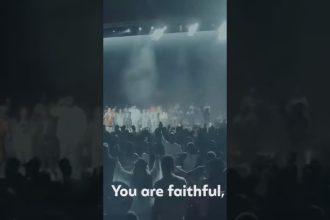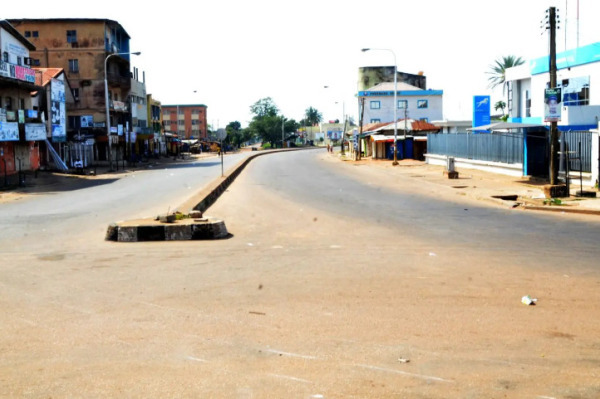
The imposition of curfews in some states in Northern Nigeria has adversely affected Sunday worship and mid-week services, Christian leaders say. State authorities imposed curfews in major cities such as Jos, Kaduna, Zaria, Gusau, Dutse, Kano, Minna, and Damaturu, following the week-long cost of living nationwide protests that had been called by the civil society from August 1.
Governors and local government authorities in the affected states of Plateau, Kaduna, Kano, Niger, and Yobe, announced restrictions of movements and lockdowns to curb the looting and destruction of property blamed on criminal elements that infiltrated the protesters. The protests and the curfews affected church programs and Sunday worship services which couldn’t be held on August 4 and 11, 2024, some pastors said.
Dimulak Mwanmut, church secretary with the Evangelical Church Winning All (ECWA) in the city of Jos in Central Nigeria announced a change of worship services due to the movement restrictions that had been imposed by the Plateau State government.
“The curfew in place in Jos/Bukuru restricts movement to 10am to 6pm daily. In light of this, our Sunday worship service will start at 10:30am tomorrow, 11/8/24. This is to allow people enough time to get to church before service begins. May the Lord keep watch over his people.”
The Senior Pastor of Ambassadors of Christ Ministry International, Zion City campus in Jos, Dr. Prince Buma, also notified congregants that the Sunday 11 August service had been suspended “in view of the current prevailing security situation in Jos, Plateaua State and the curfew imposed by the State Government.”
In Kaduna State, the federal government declared a 24-hour curfew in Kaduna City and Zaria, urging residents to stay indoors as security forces restored order. Mid-week church services were canceled on the week of August 5 while businesses, markets and governments remained closed for the better of the week. The police had warned the public that a banned religious group had hijacked the protests in the state on the first day of the protests.
Kano State Government was among a handful of States that reviewed the restrictions from a 24-hour curfew to allow residents free movement between 8 am and 2pm. Kano State Commissioner for Information, Baba Dantiye, said Governor Abba Yusuf had assured residents that the curfew would be reviewed “as the security situation improved”, the Federal news wire, The News Agency of Nigeria (NAN) reported.
While the demonstrations ended on Saturday, 10th August, a section of the civil society, including the Nigerian Patriotic Front Movement, vowed to return to the streets once the curfews are lifted, and carry an “indefinite protest” until the cost of living and governance issues are addressed.
Protesters had also demanded that President Bola Tinubu’s government address the high cost of living by restoring fuel subsidies that pushed up prices of goods and transportation costs. Thousands also demanded that the government accountability and transparency with the #EndBadGovernanceInNigeria used to rally protesters online.
Religious leaders had urged congregants to keep off the protests and pursue dialogue as a means of making their demands known. The Nigeria Inter-Religious Council (NIREC) called an end to the protests while at the same time urging the Nigerian government to address the issues raised by the citizens.






